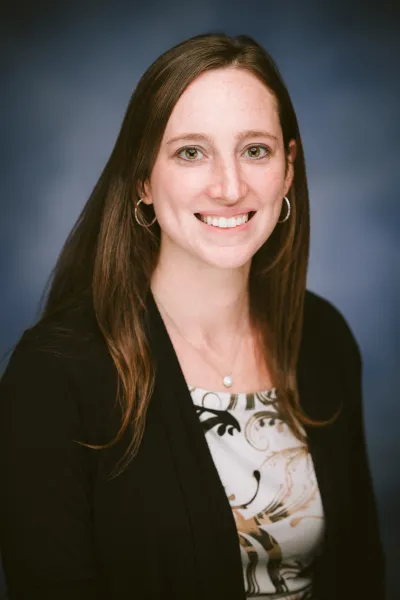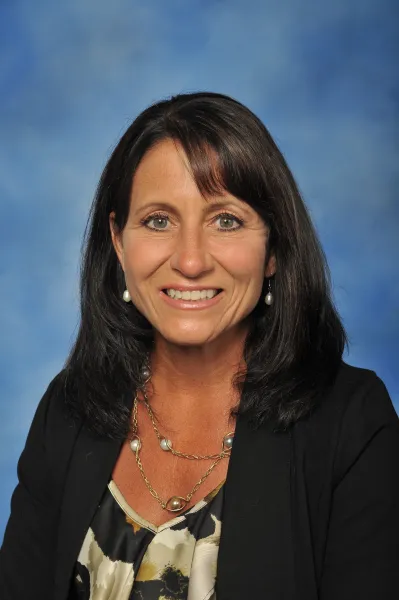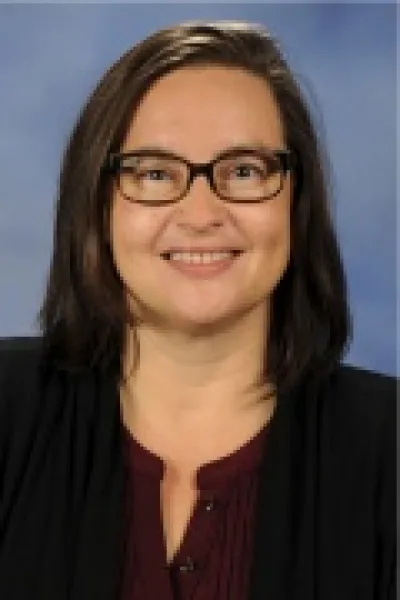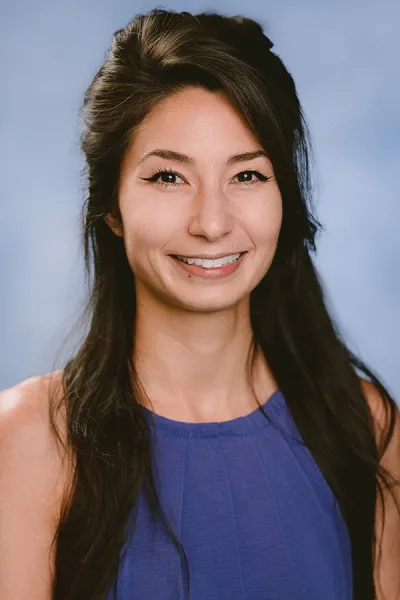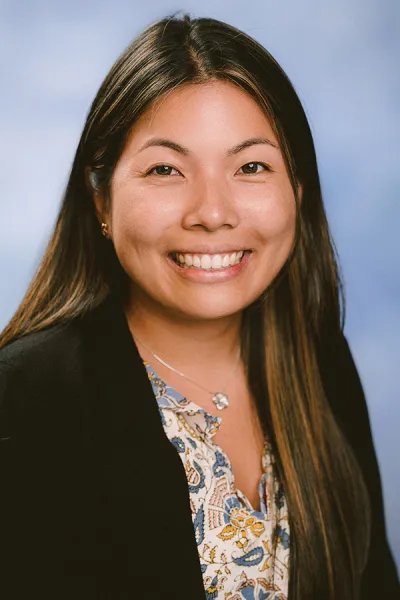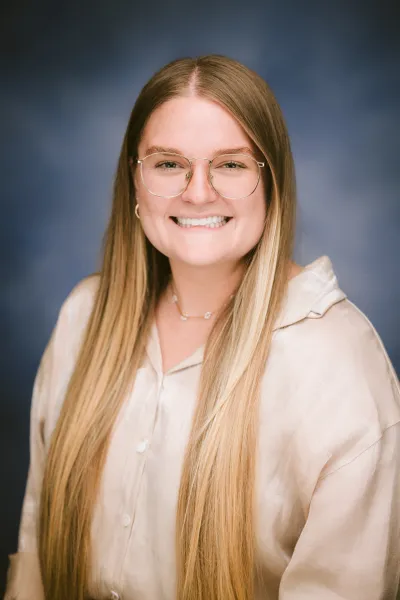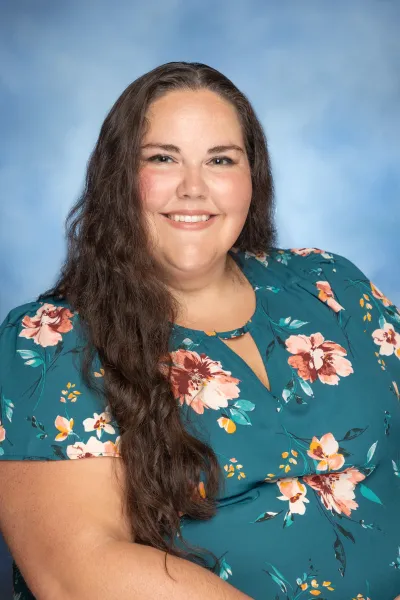Ophthalmology Residency
The 3-year residency program in Comparative Veterinary Ophthalmology at the Ohio State University provides advanced clinical training and specialization in the diagnosis and treatment of ophthalmic diseases of small and large animals under the supervision of board-certified specialists.
Additional Residency Resources learn more about our veterinary health system
Objectives
The objectives of the program are for the resident to accomplish the following:
- Develop comprehensive, state-of-the-art expertise and clinical and surgical proficiency in ophthalmology.
- Satisfy the criteria necessary to qualify for Board Certification, and to prepare the resident for successful completion of the American College of Veterinary Ophthalmologists Certification Examination.
- Prepare for future career goals of teaching, clinical research, scientific publication, or specialized practice.
General Goals of the Residency Program
First year: 90-100% direct supervision. Goals are to develop a thorough understanding of the normal eye and establish the diagnostic/therapeutic foundation for clinical veterinary ophthalmology and to initiate a research project and beginning the research project by the end of the first year of the residency. The resident should also begin preparation for the ABVO application including establishing a case and surgical log.
Second year: 80-90% direct supervision. Goals are to develop a thorough understanding of comparative ophthalmology and ophthalmic pathology, refine clinical and surgical skills, complete research project, continue preparation of the ABVO application and to develop competence in ophthalmic photography and microsurgery.
Third year: 80-85% direct supervision. Goals are to develop familiarity with current ophthalmic research, refine abilities in laboratory and exotic animal ophthalmology, to refine techniques in ophthalmic microsurgery and to finalize application and preparation for the ABVO examination.
Clinical Service Responsibilities
- Residents will participate in all small and large animal clinical appointments, emergencies, and all in-house consultations at the main campus location.
- Residents will participate in small animal clinical appointments at VMC Dublin, a local satellite location.
- When possible, residents should examine all outpatients and hospitalized patients.
- Residents should assist in and/or perform common ophthalmic procedures.
- Competency in surgery practice on cadavers will be expected prior to complex surgical procedures in live patients.
Surgical Procedure Timeline
- Residents are expected to set up the operating microscope, video monitor and phacoemulsification machine prior to surgery and to put away all equipment at the conclusion of the surgery day.
- Residents are responsible for cleaning the micro surgical packs and the eye packs and for flushing the irrigation/aspiration and phacoemulsification handpieces.
First year: Residents are expected to become proficient in extraocular procedures such as entropion correction, eyelid tumor excision, nictitans abnormalities, enucleation and evisceration and intrascleral prosthesis. Depending on ability, residents may also primarily perform keratectomy and conjunctival graft placement and may begin to master the approach to cataract surgery. The resident is expected to be familiar with the use of magnificaton using both surgical loupes and operating microscopes and to be able to set these up and use them appropriately. The resident is expected to be familiar with microsurgical instruments, their names, use and care. Residents are expected to develop an understanding of the mechanics of the phacoemulsification machine.
Second year: Residents are expected to become proficient in corneal surgery such as laceration repair, keratectomy, conjunctival graft placement. Major blepharoplasty and orbital procedures should become familiar. Depending on the resident’s abilities, he/she will be assisted by a faculty member to perform intraocular surgery including phacoemulsification, irrigation/aspiration, implantation of intraocular lens implants, closure of corneal incision and lensectomy.
Third year: Residents are expected to refine microsurgical skills particularly in intraocular surgery as listed under the second year.
Medical Records
Medical records should be completed in a timely fashion and should include the following:
- Chart master problem list and other exam findings, including assessment, plan, prognosis, and home care instructions.
- Client instructions and referral copy of medical record sent with links to rDVM portal opened in EzyVet for exam and bloodwork by end of day for all out patients.
- In-patients' SOAPs should be read at least once and comments made in the chart during the hospitalization of the pet to ensure that the patient is being properly cared for and that the student understands the diagnosis, treatment plan and prognosis.
- Surgery reports should be reviewed, corrected, and final copies approved within 24 hours of the surgery. It is the responsibility of the primary clinician on the case to make sure that the surgery reports are complete.
- Follow up on laboratory tests and call owners and referring veterinarians with results. It is acceptable for the student on the case to call owners with results.
- Follow up on pathology reports and call owners and referring veterinarians with results.
- All client communication logged appropriately.
Telephone Consultations
- Residents are responsible for promptly attending to all potential emergency calls from referring veterinarians or medical questions from current clients.
- For non-emergency calls, the calls should be returned the same day if possible, but must be returned by the following day.
After-hours Emergencies
- The resident on call must be reachable by phone at all times.
- The resident on call should examine all cases referred for evaluation of an eye problem by a veterinarian and most current patients of ophthalmology that present with problems.
- The resident on call can use personal judgment after consultation with the emergency clinician on duty to determine if it is necessary to examine non-referred patients with ocular problems.
- The resident on call is responsible for telephone consultation with the emergency clinician to assist in diagnosis and treatment of ophthalmic cases.
- The resident on call is responsible for locking up all equipment after finished with an emergency.
- The resident is responsible for entering charges for all emergency patients before the patient is discharged.
- The resident is expected to consult with the faculty member on back-up for all equine emergencies and any complex cases or for any questions.
Hospitalized Patients
- Residents are expected to complete an examination on all hospitalized patients prior to attending morning rounds.
- Residents are responsible for checking ICU or ward orders to ensure accurate treatment of the patients.
- The resident or the student on the case should update owners on the condition of the patient each morning after evaluation.
- Residents are responsible for assisting the senior students in determining daily insulin doses based on morning and evening blood glucose levels.
Patient Log and Surgery Log
- Residents are responsible for maintaining a surgery log per ABVO biannual requirements.
- Each surgery should be coded as follows: 3=resident is the primary surgeon without a diplomate assisting, 2=resident is the primary surgeon with the diplomate assisting, 1=resident is the assistant surgeon to a diplomate or senior resident as the primary surgeon.
Teaching Responsibilities
Didactic Requirements
- Residents are expected to assist in student instruction/supervision/evaluation in clinical rotations for seniors.
- Residents are responsible for leading anatomy rounds, discussions on daily cases and sample cases in clinical case slide set.
- Residents are required to assist in surgical laboratories and techniques laboratories for both clinical and pre-clinical students.
Academic Requirements: Rounds
- Residents are responsible for creating a schedule for rounds each month and distributing it to all participants one week prior to the end of the month.
- Residents are expected to attend all rounds and to be prepared and punctual.
- Rounds schedules will include journal club, histopathology (1-2/month), image rounds, book chapter rounds and residents’ organizational and progress meetings.
- Residents are expected to pick up slides for histopathology from Goss Lab and to return them after rounds. Residents are responsible for making sure that rooms and the microscope are reserved for rounds each semester.
Educational Opportunities
Basic Science Course
All residents are strongly encouraged to attend one Basic Science Course, a three-week intensive comparative ophthalmology and histopathology course offered in-person every second year. Virtual attendance can be considered in off cycle years.
ABVO Credentialing Process
Residents must complete the credentials process as outlined by the requirements of the ACVO.
ABVO Board Examination and Required Reading List
The resident is responsible for reviewing required journals and texts at least on a monthly basis for literature required to read for boards. A current list of required reading and other material can be found at https://www.abvo.us/examination
ACVO Meeting
The resident is expected to attend at least 1 ACVO meeting during the 3-year program and to present a paper/poster related to research performed during the residency program.
Research and Scholarly Activity
Research Project
- Residents are responsible for developing, with the assistance of the research mentor, a research project suitable for publication.
- Residents are expected to write a grant and to successfully acquire funding for their projects, infnecessary.
- Residents are expected to present the results of the research project at the ACVO meeting.
- Residents are expected to submit the research project for publication prior to March of their final year.
Other Specialty College Requirements
Additional requirements for successful completion of the residency as mandated by the ACVO may be found at www.abvo.us
Off Clinic Time
- A minimum of 26.4 weeks/3yr residency are provided off clinics for scholarly work primarily on the grant, research project, publication, and attendance of the Basic Science course. Off clinics time may be used for preparation of credentials and for preparation for the ACVO examination as long as the other requirements are fulfilled.
- Off clinics time is scheduled at the discretion of the mentors and the resident is responsible for keeping track of time used and time remaining.
Contact
For more information, please contact
Georgina Newbold, DVM, DACVO
newbold.16@osu.edu
Contact Us
For general inquiries, please contact the VCS Education Program Coordinator:
Chelsea Souder
VCS Education Program Coordinator
Phone: 614-688-0332
Email: Souder.60@osu.edu
